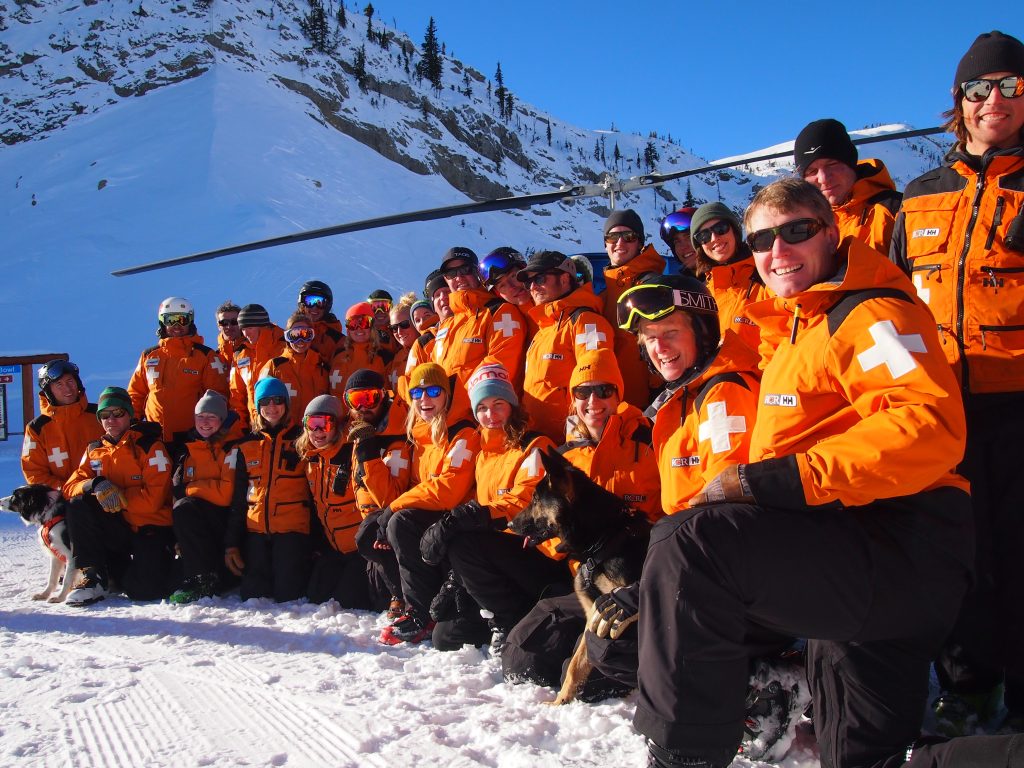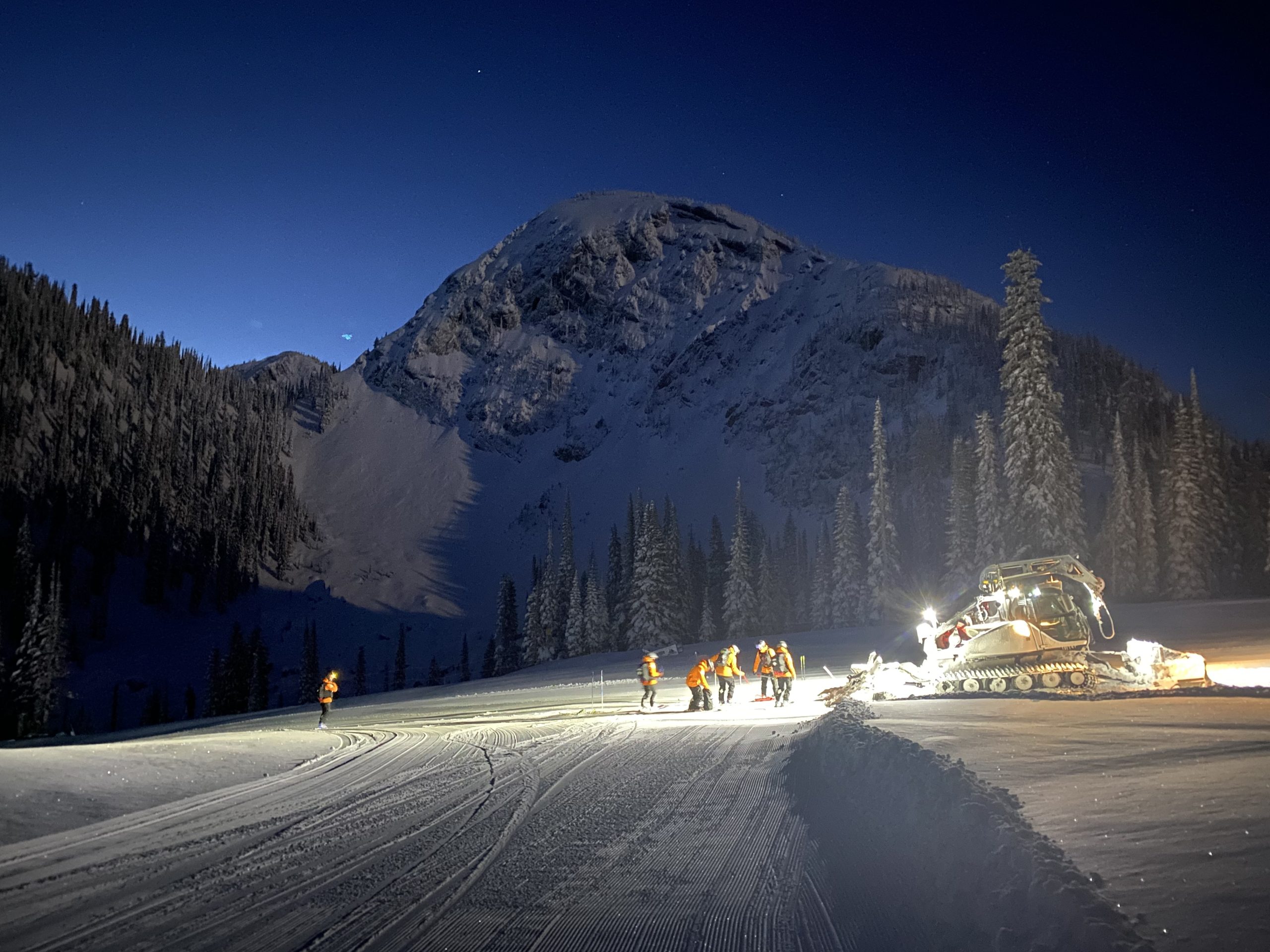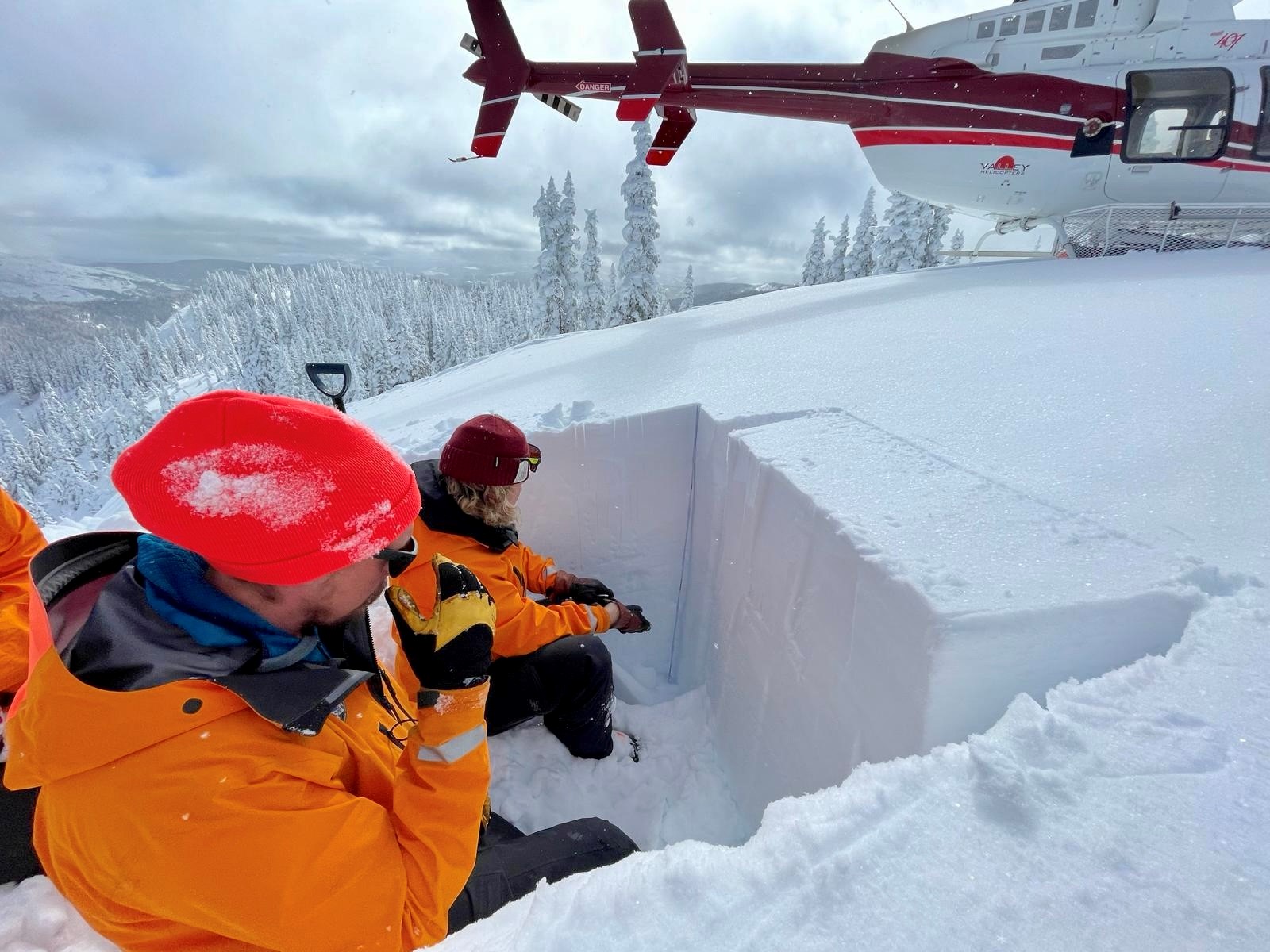Fernie Ski Patrol’s Mental Health Journey
By Tyler Carson
This article was originally published in The Avalanche Journal, Vol. 131, winter 2022-23.
SOMETIMES THE ROAD AHEAD can look short and smooth—just follow Siri’s directions turn-by-turn until you reach your destination. Not everything in life is like this though. When you start off not knowing where you are or where you are going, it’s hard to tell where to start.
For Fernie Alpine Resort’s ski patrol, our journey began several years ago after a few incidents where being reactionary to high-stress events could have gone better. It took us time and reflection to see a way forward. Many of the patrollers were finding ways to cope, but those methods were actually detrimental to their mental health. We came from a culture of just going out drinking off the day’s worries, working so hard you didn’t have time to reflect, and finding other Band-Aid solutions. When the time came that we knew a change was needed, we started out by planning a systematic approach to dealing with critical incident stress occurrences. We basically came up with a playbook: when a critical incident happens, we go through these steps and solve the problem.
Things started slowly. We implemented debriefs that had meagre turnouts and few patrollers benefited from them. This system only dealt with one incident at a time and didn’t take into consideration the ongoing effects of multiple events, seasons, and lifetimes of exposure not just to work stresses, but to events that happen when we are not at work and just living the human experience.

In the fall of 2018, with support from all levels in our company, we brought in a trainer for the Road to Mental Readiness™, now known as the Working Mind First Responders, through the Mental Health Commission of Canada. All patrollers, as well as some upper management, participated in this workshop. It brought us some tools and training to help identify our current personal mental health state and gave us some tools to cope. Problem solved, case closed, boxes ticked.
Then, on Nov. 6, 2019, a very short time before staff training started, a key member of our patrol team died by suicide. We felt like we had driven off the road. How could this have happened? We were taking the right steps, we were on the road, and we had a map of where we thought we were going. For a short while we stumbled around lost, doing the best we could on our own. Members of our team recognized the need for external help and connected with an excellent mental health resource within our community, the Elk Valley Suicide Task Force. Reaching out to them and bringing in trained professionals was key to our collective healing and getting to a place where we could see a way forward.
At the start of the 2020-21 season, we knew the winter would look different, with separated shifts and limited gatherings due to the pandemic. We included basic mental health training and gathered a diverse group of willing speakers from within the team, who shared their own journeys with mental health in order to reduce stigma. The more we shared, the more we saw empathy spread and the more willing everyone was to share their own struggles and successes. We also started to put into place an informal strategy to optimize our communication when one of the few opportunities presented itself.
A great analogy that we discussed in training likened our transceiver batteries to our personal batteries. As patrollers, we check our transceiver batteries daily, but what about our personal ones? Nik Dunn, a patroller early in his career, gave me a good description of how this self-assessment worked for him. He talked about how everyone has an internal battery that can be affected by sleep, stress, experiences, and more, and related it to the battery in our transceiver. He suggested that every morning when I check my transceiver
battery, I should also check my internal battery.
“Initially, I thought relating your transceiver battery to your internal battery sounded kind of silly, but it’s safe to say I’m glad I gave it an honest shot. The season proved to be a challenging one and having that self check-in and team check-in with my partner was extremely valuable for setting a foundation for the day,” explained Nik. “I find it very easy to be hard on myself, and just having a quick check-in and saying, ‘OK, my internal battery is at 75% today’ allows me to be a little bit more kind and understanding to myself. I think this goes a long way toward my patience and empathy as a professional. It is also a valuable tool to bring up and form an understanding of where my partner is on any given day before we head out on a route. This process, which I thought to be kind of cheesy at first, has really proven to be a useful
tool I now use daily.”

When Nik provided his explanation to me, it hit me that we were making progress slowly and uncomfortably, but it was happening. In the fall of 2021, we added a peer support group to our team that was made up of volunteers within our department who had attended peer support training. They supported both individuals and the group by organizing activities, providing an ear for individuals, and helping to give direction and information for ongoing and greater support. Naturally, there are members within the team that carry the larger load just by virtue of their role in the department, their personality, or their schedule. This, unfortunately, increases mental health challenges for the peer-support team.
In the later part of the season, we noticed an even bigger shift. After multiple critical incidents, we initiated group debriefs that weren’t tied to our working hours and open to anyone to attend. We made sure to connect with external mental health professionals and offer a warm, inviting atmosphere for people to feel comfortable sharing where they were at. We had done these kinds of debriefs in the past, but something shifted last winter and the turnout was beyond anything we had previously seen. This was a launching point for moving beyond a small team of peer-support members carrying the biggest load and really becoming a workplace that put a priority on caring for each other every day, especially when a critical incident happened.
After any of our high-stress situations, of which there can be many on a ski hill, we have built a system of support that relies on all the previous training and experiences. We utilize the Road to Mental Readiness and we check in on our internal batteries. We have gone beyond a small group of peer support members and are working our way to a more holistic approach to mental health. Our entire team is learning there are co-workers that are safe to talk to and have many shared experiences. We are becoming comfortable holding space for the vulnerability of each individual’s well-being.
Using this formal and informal method is hopefully leading us down the road to a more sustainable level of mental health. We have discovered the value of speaking about mental health and how making it a more common part of our vocabulary helps to make seeking help more acceptable and reduces stigma. Our journey may not work for everyone, but you have to start somewhere. The one thing we have learned is your approach needs to be diverse and multi-faceted to meet people where they are. We see that not every two steps forward can come without a step backwards, and that’s OK. Like Nik says, we all need to identify when we need to show ourselves a bit more empathy
and understanding.







1 thought on “Minding Our Mental Batteries”
An important article about strategies for mental health. I love the internal battery check. Well done Tyler and the Fernie Pro Patrol!
Comments are closed.